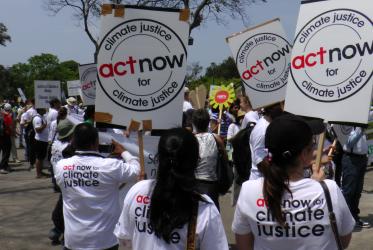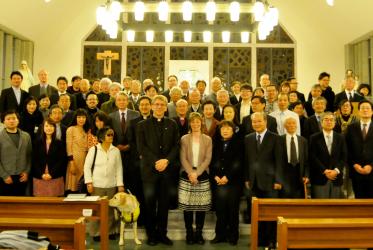Displaying 141 - 160 of 309
“The world must be freed of nuclear weapons”
06 August 2015
WCC encourages churches to pray on Hiroshima Day
06 August 2015
Churches' “prophetic voice” will be busy in 2015
18 June 2015
Momentum builds for ban on nuclear weapons
16 December 2014
Churches in Japan are witnesses of justice and peace
12 December 2014






